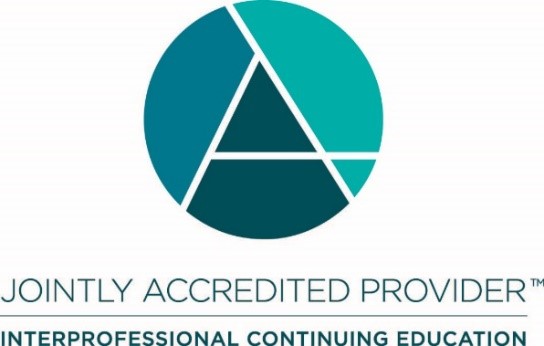Best Practices for Incorporating Patient-Reported Outcomes into Oncology Care
Education in this area is important because patient-reported outcomes (PRO) data has been shown to improve outcomes and increase survival among cancer patients. Since centers are just beginning to collect and utilize this data, challenges exist such as determining the mechanisms utilized to collect this information, determining the type of data to collect, integrating the data into clinical workflows, ensuring patient follow-up, and implementing a governance structure.
Target Audience
The program is designed to meet the needs and improve the competence and performance of the interprofessional oncology care team, including physicians, nurse practitioners, nurses, physician assistants, pharmacists, and other relevant health care professionals who manage the care of patients with cancer.
Learning Objectives
Following this program, participants should be able to:
- Discuss the benefits and challenges associated with collecting and utilizing patient-reported outcomes.
- Apply best practices for incorporating patient-reported outcomes into routine clinical care.
Emma Hoo
Purchaser Business Group on Health – PBGH
Debra A. Patt, MD, PhD, MBA, MPH
Texas Oncology
Fernanda C. G. Polubriaginof, MD, PhD
Memorial Sloan Kettering Cancer Center
NCCN Continuing Education Disclosure Policy
It is the policy of NCCN that every 12 months, all faculty, moderators, activity planners and all internal planning staff participating in NCCN continuing education activities are expected to disclose any financial relationships with a commercial interest. In addition, all faculty presentations have been reviewed to ensure education is fair and balanced and that clinical content presented supports safe, effective patient care. Individuals who do not disclose relevant financial relationships will be disqualified from involvement in the CE activity as a content developer, planner, or presenter.
Definitions
NCCN continuing education considers financial relationships to create a conflict of interest when an individual has both a financial relationship with a commercial interest and the opportunity to affect continuing education content about the products or services of a commercial interest with which he/she has a financial relationship.
NCCN continuing education considers relevant financial relationships as financial relationships in any amount occurring within the past 12 months that create a conflict of interest. NCCN does not set a minimal dollar amount for relationships to be significant. Inherent in any amount is the incentive to maintain or increase the value of the relationship.
Faculty Disclaimers
All faculty for this continuing education activity are competent in the subject matter and qualified by experience, training, and/or preparation for the tasks and methods of delivery.
Faculty presentations may include discussion of off-label use. Faculty will disclose that the use in question is not currently approved by the FDA per the product labeling.
Faculty Disclosures
The faculty listed below discloses no relevant financial relationships:
Emma Hoo
Fernanda C. G. Polubriaginof, MD, PhD
The faculty listed below discloses the following relevant financial relationships:
Debra A. Patt, MD, PhD, MBA, MPH
AstraZeneca Pharmaceuticals LP: Consulting Fee
Mednax Services, Inc.: Officer, Director or any other fiduciary role
Pfizer Inc.: Consulting Fee
Moderator Disclosures
The faculty listed below discloses no relevant financial relationships:
Peter D. Stetson, MD, MA
NCCN Staff Disclosures
The NCCN Leadership listed below discloses no relevant financial relationships:
Robert W. Carlson, MD; Wui-Jin Koh, MD; Gary J. Weyhmuller, MBA, SPHR
The NCCN Activity Planning staff listed below discloses no relevant financial relationships:
Mike Abrams; Melissa Esplen; Mark A. Geisler; Kristina M. Gregory, RN, MSN, OCN; Kristin Kline Hasson; Rose Joyce; Karen Kanefield; Lisa Perfidio, MS; Shannon Ryan, CMP; Kathy Ann Smith, CHCP; Sarah Weinstein
The NCCN staff listed below disclose no relevant financial relationships:
Tricia M. Heinrichs, PMP; Jessica M. Sugalski, MPPA

In support of improving patient care, National Comprehensive Cancer Network (NCCN) is jointly accredited by the Accreditation Council for Continuing Medical Education (ACCME), the Accreditation Council for Pharmacy Education (ACPE), and the American Nurses Credentialing Center (ANCC), to provide continuing education for the healthcare team.
Physicians
NCCN designates this enduring material for a maximum of 1.5 AMA PRA Category 1 Credits™. Physicians should claim only the credit commensurate with the extent of their participation in the activity.
Nurses
NCCN designates this educational activity for a maximum of 1.5 contact hours.
Pharmacists
NCCN designates this knowledge-based continuing education activity for 1.5 contact hour (0.15 CEUs) of continuing education credit. UAN: JA4008196-0000-21-050-H01-P
Physician Assistants
NCCN has been authorized by the American Academy of PAs (AAPA) to award AAPA Category 1 CME credit for activities planned in accordance with AAPA CME Criteria. This activity is designated for 1.5 AAPA Category 1 CME credits. Approval is valid until March 1, 2022. PAs should only claim credit commensurate with the extent of their participation.
Available Credit
- 1.50 AAPA Category 1 CME credit
- 1.50 ACPE contact hours
- 1.50 AMA PRA Category 1 Credit™
- 1.50 ANCC contact hours
- 1.50 Participation
Required Hardware/software
To complete this activity, users will need:
- A device with an Internet connection and sound playback capability
- One of the two latest versions of Google Chrome, Mozilla Firefox, or Safari
- Internet Explorer is no longer supported
- Adobe Reader or other PDF reader software for certificate viewing/printing

 Facebook
Facebook X
X LinkedIn
LinkedIn Forward
Forward